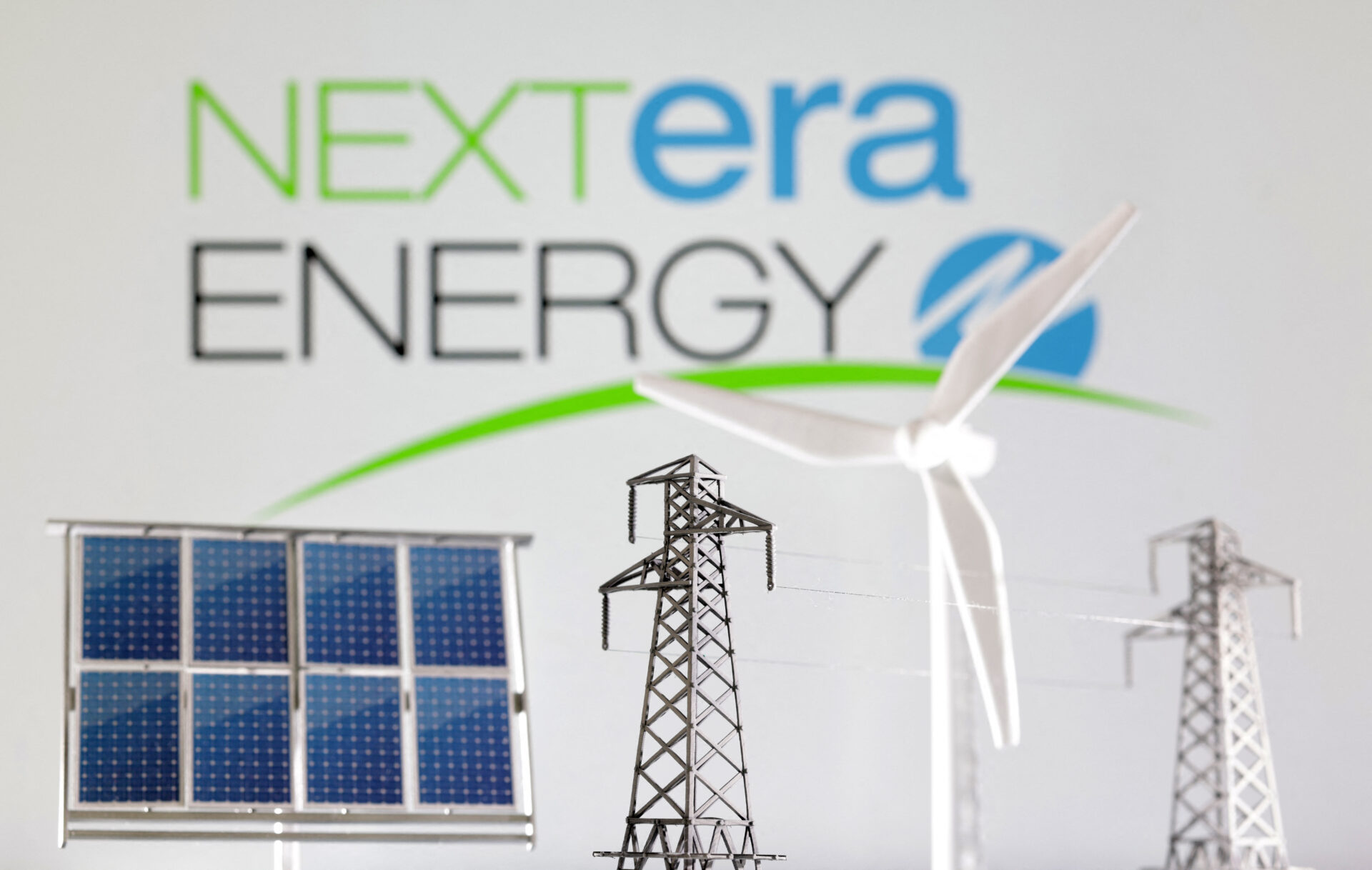In the race to a sustainable future, one company has been leading the pack: NextEra Energy. But did you know that this renewable energy titan produces more wind and solar energy than any other company worldwide? It’s true! However, in the fast-paced world of green energy, NextEra isn’t running unopposed. Today, we’re diving deep into the top competitors giving NextEra a run for its money. From utility powerhouses to international giants, these companies are shaping the future of clean energy. Let’s plug into this electrifying industry and see who’s who in the world of renewables!
The Renewable Energy Landscape in 2024
Before we spotlight NextEra’s competitors, let’s set the stage with a snapshot of the current renewable energy market. It’s a sector that’s not just growing – it’s booming!
Global renewable capacity additions hit a record 295 GW in 2023, with solar and wind accounting for over 90% of this growth. The International Energy Agency (IEA) projects that by 2026, global renewable electricity capacity will rise more than 60% from 2020 levels, reaching 4,800 GW. That’s equivalent to the current total global power capacity of fossil fuels and nuclear combined!
Driving this surge are several factors:
- Falling costs: The price of solar panels has dropped by 89% since 2010, making renewable projects increasingly cost-competitive. However, if you are worried about your electricity bill these days, considering a Utility bidder will help you compare the costs and get the best option available in your locality.
- Policy support: The Paris Agreement and national renewable targets continue to push governments and corporations towards clean energy.
- Corporate demand: Major companies like Google, Amazon, and Walmart are committed to 100% renewable energy, driving significant private investment.
In this landscape, NextEra Energy stands tall. With a market cap of over $150 billion and a renewable energy portfolio of more than 24 GW, NextEra isn’t just a player in the renewable energy game – it’s setting the rules. But as the saying goes, heavy is the head that wears the crown. Let’s meet the contenders vying for NextEra’s throne.
1. Duke Energy
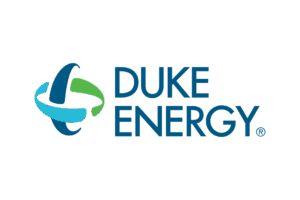
Website – https://www.duke-energy.com/
First up is Duke Energy, a utility giant that’s been lighting up the American Southeast since 1904. But don’t let its age fool you – Duke is charging full speed into the renewable future.
Duke’s renewable portfolio has grown to over 10 GW of wind, solar, and storage capacity. Their flagship projects include the 200 MW Mesteño Wind Facility in Texas and the 74.9 MW Hamilton Solar Power Plant in Florida. But Duke isn’t stopping there – they’re targeting 16 GW of renewable energy by 2025 and 24 GW by 2030.
How does Duke stack up against NextEra? While NextEra’s market cap of $150 billion dwarfs Duke’s $65 billion, Duke’s traditional utility business provides stable cash flows that fund its renewable ambitions. Over the past five years, Duke’s stock has seen steady growth, though not quite matching NextEra’s meteoric rise.
Duke’s strategy to compete in the green energy space focuses on three key areas:
- Grid modernization: A $61 billion investment plan to create a smarter, more resilient grid.
- Electric vehicle infrastructure: Installing over 50,000 EV charging stations across its service territories.
- Energy storage: Targeting 1,600 MW of energy storage by 2035.
With its strong utility base and ambitious renewable plans, Duke Energy is proving to be a formidable competitor in NextEra’s backyard.
2. Iberdrola

Website – https://www.iberdrola.com
Crossing the Atlantic, we find Iberdrola, a Spanish utility company that’s become a global renewable energy powerhouse. Iberdrola’s renewable energy capacity stood at 38,000 MW in 2023, spread across Europe, America, and Asia-Pacific.
Iberdrola’s expansion into the U.S. market comes through its subsidiary, Avangrid. With a focus on the Northeast, Avangrid is making waves in both onshore and offshore wind. Their Vineyard Wind 1 project, the first large-scale offshore wind farm in the U.S., is set to power over 400,000 homes in Massachusetts.
Technologically, Iberdrola gives NextEra a run for its money. The company is a leader in offshore wind, an area where NextEra has less experience. Iberdrola is also pushing the envelope with innovations like:
- East Anglia Hub: A 3.1 GW offshore wind complex in the UK, using massive 14 MW turbines.
- Green hydrogen: Plans to build Europe’s largest plant for industrial use green hydrogen.
As NextEra looks to expand globally, Iberdrola’s international experience and technological edge make it a competitor to watch.
3. Enel Green Power
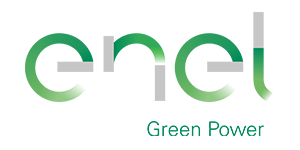
Website – https://www.enelgreenpower.com/
Italy’s Enel Green Power is another international player giving NextEra a global challenge. With 59 GW of managed renewable capacity across 5 continents, Enel is a true renewable energy giant.
Enel’s diverse portfolio includes unique projects like:
- Cerro Pabellón: The first geothermal plant in South America, high in Chile’s Atacama Desert.
- Roadrunner: A 497 MW solar plant in Texas, one of the largest in the U.S.
Recently, Enel has been on an acquisition spree, buying up mid-size renewable developers to fuel its growth. In 2022, it acquired U.S.-based wind and solar developer Tradewind Energy, significantly boosting its North American presence.
Enel competes directly with NextEra in key markets like North and Latin America. Both companies are racing to build the largest solar + storage projects, with Enel’s recent 284 MW Azure Sky project in Texas going head-to-head with NextEra’s 700 MW Skeleton Creek in Oklahoma.
4. Brookfield Renewable Partners
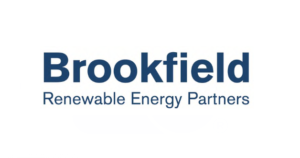
Website – https://bep.brookfield.com/
Brookfield Renewable Partners takes a unique approach to the renewable energy business. As a yieldco, Brookfield focuses on acquiring and operating renewable assets to generate stable cash flows for investors.
Brookfield’s portfolio includes:
- 8,100 MW of hydroelectric
- 4,900 MW of wind
- 2,900 MW of solar
- 2,700 MW of storage and other
This diverse mix, spread across North and South America, Europe, and Asia, gives Brookfield a global footprint rivaling NextEra’s.
While NextEra often develops projects from scratch, Brookfield’s strength lies in acquiring and optimizing existing assets. This approach allows them to rapidly expand their portfolio and enter new markets. For example, their recent acquisition of Urban Grid in the U.S. added a 20 GW development pipeline overnight.
Brookfield’s asset management expertise and access to institutional capital make it a formidable competitor, especially in project acquisitions and financial structuring.
5. Orsted
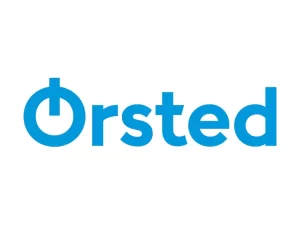
Website – https://orsted.com/
When it comes to offshore wind, no company casts a longer shadow than Denmark’s Orsted. With 7.6 GW of offshore wind capacity in operation and another 2.3 GW under construction, Orsted is the undisputed leader in this rapidly growing sector.
Orsted’s technological innovations include:
- Deployment of 14 MW turbines, the largest in the world
- Development of floating offshore wind technology for deep water installations
While offshore wind has been Orsted’s bread and butter, the company is rapidly expanding into onshore renewables and storage. In 2021, Orsted acquired Brookfield Renewable Ireland, adding a 1 GW onshore wind development pipeline.
As NextEra looks to enter the offshore wind market, it’s finding Orsted already well-established. The two companies are competing fiercely for leases along the U.S. East Coast, with projects like Orsted’s Ocean Wind (1.1 GW off New Jersey) going up against NextEra’s proposals in North Carolina and Florida.
6. Avangrid
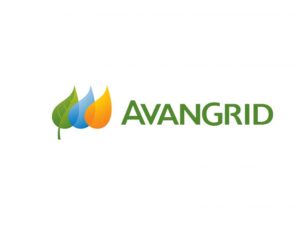
Website – https://www.avangrid.com/
We’ve mentioned Avangrid as Iberdrola’s U.S. subsidiary, but this company deserves a spotlight of its own. Formed in 2015 through a merger of Iberdrola USA and UIL Holdings, Avangrid combines regulated utility operations with a growing renewable energy business.
Avangrid’s renewable portfolio includes:
- 8.6 GW of installed capacity
- 24 GW of pipeline projects
- A mix of onshore wind, solar, and offshore wind
What sets Avangrid apart is its “Networks + Renewables” business model. By combining stable cash flows from regulated utilities with high-growth renewable projects, Avangrid aims to offer investors the best of both worlds.
In direct competition with NextEra, Avangrid is pushing hard into offshore wind. Their Vineyard Wind 1 project, mentioned earlier, puts them at the forefront of this emerging U.S. market. They’re also expanding aggressively in onshore wind and solar across the Southwest and Midwest, often bidding against NextEra for projects and power purchase agreements.
7. Xcel Energy
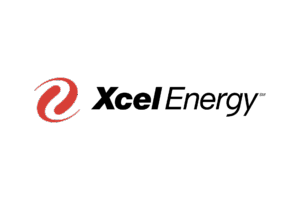
Website – https://my.xcelenergy.com/
Xcel Energy might not be a household name like some of our other contenders, but this Midwest utility is making big waves in the renewable energy space. Xcel was the first major U.S. utility to commit to 100% carbon-free electricity, targeting 2050 for this ambitious goal.
Xcel’s current generation mix includes:
- 30% wind
- 25% nuclear
- 23% natural gas
- 13% coal
- 9% solar and other renewables
By 2030, Xcel plans to increase its wind and solar capacity to 60% of its energy mix, while reducing coal to just 4%.
In markets where Xcel and NextEra overlap, the competition is fierce. Both companies are racing to build large-scale wind farms in states like Minnesota and Colorado. Xcel’s approach focuses on rate-based investments, allowing them to earn regulated returns on their renewable projects. This strategy has helped them rapidly expand their renewable portfolio while maintaining the stability of a traditional utility.
8. EDF Renewables
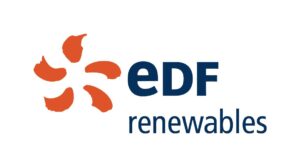
Website – https://www.edf-re.com/
EDF Renewables, a subsidiary of the French utility giant EDF Group, brings a blend of European expertise and global ambition to the renewable energy race. With 15.4 GW of gross installed capacity worldwide, EDF Renewables is a major player in both utility-scale and distributed generation projects.
EDF’s technological innovation focuses on:
- Floating offshore wind: Their Provence Grand Large project in France is one of the world’s first floating wind farms.
- Hybrid projects: Combining solar, wind, and storage for increased efficiency and reliability.
In the U.S. market, EDF Renewables often goes head-to-head with NextEra on large-scale projects. Their 500 MW Maverick Solar project in California, for instance, rivals some of NextEra’s largest solar installations. EDF also competes fiercely in the corporate PPA market, securing deals with tech giants like Google and Microsoft.
9. RWE Renewables
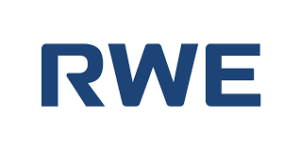
Website – https://www.rwe.com/en/
Last but certainly not least, we have RWE Renewables. This German company has undergone a remarkable transformation, pivoting from its coal-heavy past to become one of Europe’s renewable energy leaders.
RWE’s renewable portfolio stands at:
- 9 GW of wind power (both onshore and offshore)
- 2 GW of solar
- 2.7 GW of storage
The company’s growth has been supercharged by strategic moves like the E.ON asset swap in 2019, which significantly boosted RWE’s renewable capacity.
RWE’s challenge to NextEra is truly global. In the U.S., RWE is developing the 1.4 GW Sofia offshore wind farm, while also expanding its onshore wind and solar presence. In emerging markets, RWE is often bidding against NextEra for projects in Asia and South America.
Technologically, RWE is pushing boundaries with projects like:
- Triton Knoll: An 857 MW offshore wind farm in the UK, using 9.5 MW turbines
- Limondale: A 249 MW solar farm in Australia, one of the largest in the country
Conclusion: The Race to a Renewable Future
As we’ve seen, the renewable energy sector is buzzing with fierce competition! NextEra Energy may be leading the pack, but these top competitors are hot on their heels, each bringing unique strengths to the table. From Duke Energy’s utility expertise to Orsted’s offshore wind mastery, the race to dominate the green energy market is far from over.
Key takeaways from our exploration:
- Diversification is key: Most competitors are expanding across various renewable technologies, not putting all their eggs in one basket.
- Innovation drives growth: Companies investing heavily in R&D, like Iberdrola and EDF, are positioned for long-term success.
- Global expansion: The battle for renewable dominance is increasingly international, with companies like Enel and RWE challenging NextEra worldwide.
- Integration is the future: Combining renewables with storage and smart grid technologies is a common strategy among all players.
- Policy and regulation remain critical: Success often hinges on navigating complex regulatory environments, especially in emerging markets.
As consumers, we’re the real winners in this clean energy revolution. The competition is driving down costs, spurring innovation, and accelerating the transition to a sustainable energy future. In 2010, did anyone imagine we’d see solar prices drop by 89% in just a decade? Or that offshore wind farms would be powering millions of homes?
The next decade promises to be even more exciting. As battery technology improves and green hydrogen becomes commercially viable, we might see even more dramatic shifts in the energy landscape. Will NextEra maintain its lead, or will one of these challengers claim the crown?
One thing’s for sure – the race to a renewable future is on, and it’s moving at lightning speed. These companies aren’t just competing with each other; they’re racing against time to address climate change and reshape our energy systems. And in that race, every victory is a win for our planet.
So, keep your eyes on these renewable energy titans. Their competition today is shaping the world we’ll live in tomorrow. Which company do you think will come out on top in the years to come? The future is green, and it’s being written by these innovative companies as we speak!
Also Read: Top 10 Competitors and Alternatives of Duke Energy
To read more content like this, subscribe to our newsletter

